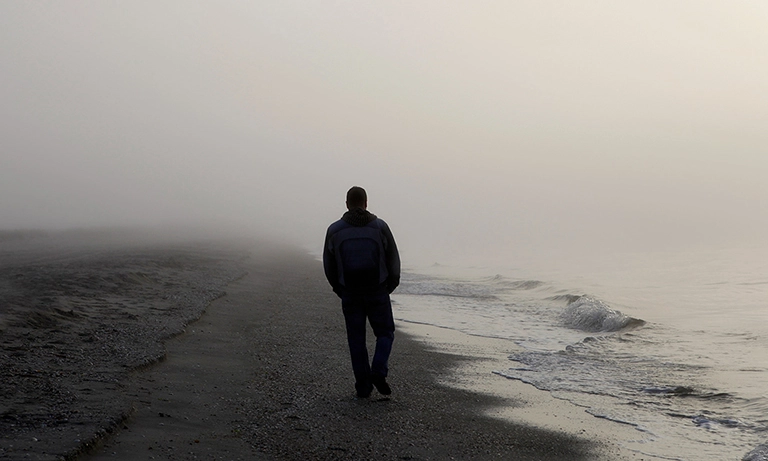
Loneliness is a feeling of social isolation or lack of companionship that affects people of all ages, genders, and backgrounds. It is not a mental illness, but it can have serious physical and psychological effects on a person’s health and well-being
1. Increased Risk For Heart Attack

The Journal of the American Heart Association found that loneliness might increase the risk of either heart attack, stroke, or death. The data showed that being socially disconnected can increase the risk of heart attack by 29 per cent and stroke by 32 per cent.
The researchers reported that people with three or fewer social contacts per month could have a 40 per cent increased risk of recurrent heart attack or stroke.
One reason why loneliness may increase the risk of heart attack and stroke is that it can lead to chronic stress, which can cause inflammation in the body. Chronic stress also affects the autonomic nervous system, which controls heart rate and blood pressure. This can lead to high blood pressure, a major risk factor for heart disease.
Loneliness can also affect a person’s lifestyle choices. When people are lonely, they may be less likely to exercise regularly, eat a healthy diet, or get enough sleep. These factors can also contribute to an increased risk of heart disease.
In addition, loneliness can cause feelings of depression and anxiety, which can further impact a person’s physical health. Depression is associated with an increased risk of heart disease, and anxiety can lead to high blood pressure and other cardiovascular problems.
It’s important to note that loneliness is not the same as being alone. People can feel lonely even when surrounded by others, while others may prefer solitude and not feel lonely at all. However, if you are feeling lonely, it’s important to seek social support and connect with others. This can include joining a social group, volunteering, or reaching out to family and friends. By addressing feelings of loneliness, you can improve your overall health and well-being and reduce your risk of heart disease.

2. Experience Dementia Faster

Loneliness has been linked to an increased risk of cognitive decline and dementia. Dementia is a progressive decline in cognitive function, including memory loss, communication difficulties, and impaired judgment. Mild cognitive impairment (MCI) is a transitional stage between normal aging and dementia, where people experience some cognitive decline but can still function independently.
Research has shown that social isolation and loneliness can accelerate cognitive decline and increase the risk of developing dementia. A Spanish study found that loneliness was associated with a 26% increased risk of dementia, highlighting the importance of social connections for cognitive health.
One reason why loneliness may increase the risk of dementia is that it can lead to chronic stress and inflammation in the body. Chronic stress has been linked to cognitive decline and a smaller hippocampus, the brain region responsible for memory and learning. Inflammation can also damage brain cells and lead to cognitive impairment.
Furthermore, loneliness can lead to a lack of mental stimulation and physical activity, both of which are important for maintaining cognitive function. When people are socially isolated, they may have fewer opportunities for intellectual conversations, learning new things, or engaging in stimulating activities, which can impact their cognitive abilities.
It’s essential to recognize the link between loneliness and cognitive decline and take steps to prevent and address loneliness. This can include connecting with others through social activities, volunteering, or joining a club or group. Family and caregivers can also play an important role in providing social support for older adults and individuals with cognitive impairment. By addressing feelings of loneliness and promoting social connections, we can improve our cognitive health and reduce the risk of dementia.
3. Greater Risk of Obesity

Loneliness has been associated with an increased risk of obesity, which is a major public health concern. Obesity is a complex condition that can result from a combination of genetic, environmental, and behavioral factors. Research has shown that loneliness may play a role in the development of obesity by negatively affecting sleep quality and promoting unhealthy eating behaviors.
One way in which loneliness can contribute to obesity is by disrupting sleep patterns. Poor sleep quality has been linked to increased levels of the hunger hormone ghrelin and decreased levels of the satiety hormone leptin, which can lead to overeating and weight gain. Loneliness may also contribute to night-eating syndrome, a condition in which people consume most of their daily calories at night, leading to further weight gain.
Moreover, loneliness can lead to psychosocial stress, which can increase the risk of overeating and abdominal adiposity. Stress can trigger the release of cortisol, a hormone that promotes the storage of fat in the abdominal region, which can lead to obesity and related health problems.
Loneliness can also lead to social isolation, which can limit access to healthy food options and physical activity. For example, people who live alone may be less likely to cook healthy meals or engage in physical activities due to a lack of social support and motivation.
It is important to address loneliness as a risk factor for obesity and take steps to promote social connections and healthy behaviors. This can include participating in social activities, joining support groups or clubs, and seeking professional help if needed. By promoting social connections and healthy habits, we can reduce the risk of obesity and related health problems.
4. Higher Dissatisfaction Towards Medical Services

Loneliness can have a significant impact on the delivery and satisfaction with medical services. Patients who experience severe loneliness are more likely to be dissatisfied with the medical services they receive, including doctors, general health care, and Medicare Supplement plans. Research shows that patient satisfaction decreases by 40% to 63% with severe loneliness and by 20% to 30% with moderate loneliness.
Loneliness can negatively impact patient satisfaction in several ways. For example, loneliness can lead to feelings of isolation and disconnection, which can make it difficult for patients to communicate with their doctors and health care providers. This can result in miscommunication, misunderstandings, and a lack of trust in the medical system.
Additionally, loneliness can increase stress levels, which can affect the way patients perceive and respond to medical treatments. When patients feel lonely and unsupported, they may be less likely to adhere to treatment plans, take medication as prescribed, or attend follow-up appointments, which can negatively impact their health outcomes.
It is important for healthcare providers to recognize the impact of loneliness on patient satisfaction and take steps to address it. This can include incorporating social support into medical care, providing resources for social connection, and ensuring that patients feel heard and supported in their healthcare journey.
5. Vulnerable to Elder Abuse

Loneliness can also increase the risk of elder abuse, which is a serious and prevalent issue in today’s society. Elder abuse can take many forms, including physical, psychological, sexual, financial exploitation, and caregiver neglect. Research shows that social isolation and loneliness are associated with an increased risk of psychological abuse, financial exploitation, and caregiver neglect.
Furthermore, loneliness and isolation can make it difficult for elders to recognize and report abuse. When elders are socially isolated, they may not have anyone to confide in or seek help from, which can prolong the abuse and lead to worse outcomes.
It is essential to recognize the link between loneliness and elder abuse and take steps to prevent it. This can include promoting social connections and support systems for elders, educating caregivers and family members about the signs of abuse, and providing resources for reporting and addressing abuse. By addressing loneliness and social isolation in older adults, we can reduce the risk of elder abuse and improve their overall quality of life.
Elders who are socially isolated and lonely may be more vulnerable to abuse because they may not have a support system to turn to in times of need. For example, they may not have family or friends who can provide assistance or intervene if they are being mistreated. Additionally, abusers may target socially isolated elders because they may be easier to control and manipulate.
References
https://www.healthline.com/health-news/how-social-isolation-loneliness-can-affect-heart-health-cognitive-abilities?slot_pos=article_1&utm_source=Sailthru%20Email&utm_medium=Email&utm_campaign=hlhearthealth&utm_content=2022-08-09&apid=37739894&rvid=423798c804bf6cf3404e684f780fe133742d0bf5706bf42aa4b7d4c2ebef4783
https://www.alzdiscovery.org/cognitive-vitality/blog/loneliness-and-the-risk-of-dementia
https://www.karger.com/Article/Fulltext/500095
https://www.mylumin.org/news/the-effects-of-loneliness-and-isolation-on-the-elderly
A Pillar of Strength in Golden Years: 10 Paths on How Regular Screenings Uphold Your Health
In the evocative voyage of life, the golden years emerge as a time to relish the fruits of decades of labor, to bask in the
Unlock the Secret to Sweet Dreams: 10 Ways of Enhancing Sleep Quality as You Age
Share on facebook Facebook Share on twitter Twitter Share on linkedin LinkedIn Share on pinterest Pinterest Share on telegram Telegram Share on whatsapp WhatsApp Share
Building Bridges, Not Walls: 10 Methods of Mastering the Art of Cultivating Social Connections in the Golden Years
Share on facebook Facebook Share on twitter Twitter Share on linkedin LinkedIn Share on telegram Telegram Share on whatsapp WhatsApp Share on email Email Share
Navigating the Golden Years: 10 Ways to Achieve Emotional Wellness and Conquering Loneliness
Share on facebook Facebook Share on twitter Twitter Share on linkedin LinkedIn Share on pinterest Pinterest Share on telegram Telegram Share on whatsapp WhatsApp Share
Stay Brainy in Your Golden Years: 10 Fun Activities to Keep Your Mind Sharp and Engaged!
Hello, brain buffs! Aging might be inevitable, but letting our minds turn to mush? No way, José! Time to boot up those brain cells and
10 Effective Exercise Routines for Older Adults: Low-Impact Fitness Options
Of course, maintaining physical health is crucial at any age, but especially so as we grow older. Here are ten gentle, effective, and friendly exercise